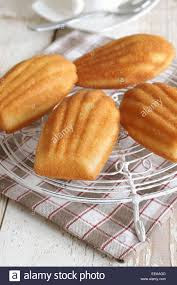Shock horror – we didn’t have blue sky all day today! We had planned to go
somewhere new today after asking Andy’s advice last night but decided against
it because it was grey. Speaking of last night, Simon was in the bar and I
showed him a photo of the King of Fashion from the Nice carnival on Tuesday and
even he had to admit it did look like him – what do you think? It’s a bad photo
of Simon because he didn’t want his photo taken but you can still see the
likeness.
We had a little bit of excitement in Villefranche this week as a section of
Rue Obscure was opened and it looks lovely.
There is a dedication to Jean Cocteau
I found a great article in The Local France about food in France – enjoy…
From crêpes to cassoulet: The ultimate food map of
France
France means food, but to
really get to the heart of French cuisine you need to know which region of the
country all those delicacies and dishes come from. We take you on an easy to
digest gastronomic tour of the country.
Where do we start? Why not out west?
Crêpes and cidre in Brittany
Brittany is home to some iconic cuisine, not least
Breton crêpes. Eat them savoury (Galettes) or sweet, with a local Breton cider
of course.
Seafood lovers should continue their culinary journey
with oysters (les huitres) in Cancale, sardines in Concarneau, Quiberon or
Dournanez and scallops (Coquilles Saint Jacques) in the bay of St Brieuc.
For afters, try a slice of Kouign Amann. Not quite
pastry, not quite cake, the buttery pudding needs to be sampled.
Moules frites in Normandy
A visit to Normandy wouldn't be the same without some
moules marinières, or moules frites. In the world famous mussels dish, the
seafood is steamed in white wine and served with chips.
Seafood is a big part of Normandy cuisine, and fish
stew from Dieppe, called Marmite Dieppoise as well as oysters and scallops are
regional favourites.
Home to the famous Camembert cheese, you can learn
about the cheese (and taste it) in the historic town of Camembert itself in
southern Normandy.
For sweet, try the salted butter caramels, apple tarts
and Tergoule, a local rice pudding.
Waterzooï in Nord-pas-de-calais
Close to the border with Belgium, you'll see plenty of
Flemish dishes on the menu, some classics are Waterzooï, a creamy fish dish and
Potjevleesch jellied meat.
Chantilly cream in Picardy
Though many cafés claim to serve Chantilly cream on their
hot chocolates, it's rarely the real thing. When in Chantilly or Picardy area,
it's a must to try the whipped cream that's historically associated with
Chantilly castle and taste the difference.
If you stop at Amiens, seek out the popular duck pâté
"en croute", which means it's cooked with a pastry crust.
Flammekueche in Alsace
Entering the colourful towns of Alsace you'll start
seeing Flammekueche on the menu. This Alsatian pizza (though the locals might
say pizza is Italian Flammekeuche) is made of very thin pastry topped with
cream, red onions and lardons.
Some say Alsace's national dish is the Choucroûte
garnie, the Alsatian version of the German sauerkraut "dressed" with
cured meats and often potatoes.
Also try: Backeoffe and Munster cheese.
Pink biscuits in Champagne
The city of Reims is home to the famous biscuit rose
de Reims. These vanilla flavoured pink biscuits were originally meant to be
white, but the crushed vanilla pods ruined the colour, so red colouring was
added to disguise it, and so the pink biscuit was born.
If you've never been brave enough to try pigeon, here
might be the place to do it. Marinated pigeons from the forests of Champagne
are a regional speciality.
Also try: potée champenoise
Cacasse à cul nu in the Ardennes
The simple "poor man's meal" of potatoes and
onions cooked in a pot rubbed with lard goes back generations in Ardenne
cuisine. Now you can find it topped with smoked sausage and bacon.
Also try: Mollet cake.
Madeleine cakes in Lorraine
The famous little shell shaped cakes come from the
towns Commercy and Liverdun in Lorraine, you can buy supermarket versions
anywhere in France, but it's worth tasting the originals.
And of course the famous quiche Lorraine, which
actually comes from German cooking, before what is now Lorraine was part of
France. Also try: boudin blanc sausages, yellow plum jams and
tarts.
Boeuf Bourgignon in Burgundy
The Boeuf Bourgignon, (beef and potato stew marinated
in red wine) is one of the cornerstones of French gastronomy, and where better
to taste it than in Burgundy itself?
Other Burgundy classics include include Escargots à la
Bourgogne and Coq au Vin.
Stop at Dijon to pick up some real Dijon mustard if
there's room in your suitcase too.
Andouillette in Lyon
Lyon is said to be the home of gastronomy in France
but one of its most famous dishes might not be everyone's favourite.
Andouillette, made of pigs intestines and colon is not for the fainthearted or
weak-stomached.
Other well known dishes and delicacies from the city
in central France include Rosette de Lyon, a cured sausage, coq au vin and of
course quenelle, a creamed fix or meat kind of dumpling.
Fondue in Savoy
What meal is more Alpine than a Fondue? Order a Fondue
Savoyarde, made with melted Beaufort, Emmental, Comté or other similar cheese,
Savoy white wine garlic.
Also try: Gratin dauphinoise.
Ratatouille in Provence
Those yearning for a meat-free dish at this point in
the journey will find comfort in the classic Provençal dish of Ratatouille
vegetables, which combines onions, peppers, tomatoes, courgettes and aubergines
and spices.
Also try: Niçoise salad, tapenade, Soupe au pistou,
daube and lavender flavoured foods from the lavender fields.
More to come tomorrow…


















Comments
Post a Comment